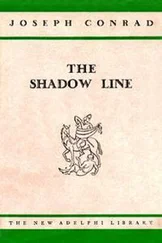Night after night he went home thus, after a day of toil and pleasure, drunk with the sound of his own voice celebrating his own prosperity. On his thirtieth birthday he went home thus. He had spent in good company a nice, noisy evening, and, as he walked along the empty street, the feeling of his own greatness grew upon him, lifted him above the white dust of the road, and filled him with exultation and regrets. He had not done himself justice over there in the hotel, he had not talked enough about himself, he had not impressed his hearers enough. Never mind. Some other time. Now he would go home and make his wife get up and listen to him. Why should she not get up? – and mix a cocktail for him – and listen patiently. Just so. She shall. If he wanted he could make all the Da Souza family get up. He had only to say a word and they would all come and sit silently in their night vestments on the hard, cold ground of his compound and listen, as long as he wished to go on explaining to them from the top of the stairs, how great and good he was. They would. However, his wife would do – for to-night.
His wife! He winced inwardly. A dismal woman with startled eyes and dolorously drooping mouth, that would listen to him in pained wonder and mute stillness. She was used to those night-discourses now. She had rebelled once – at the beginning. Only once. Now, while he sprawled in the long chair and drank and talked, she would stand at the further end of the table, her hands resting on the edge, her frightened eyes watching his lips, without a sound, without a stir, hardly breathing, till he dismissed her with a contemptuous: “Go to bed, dummy.” She would draw a long breath then and trail out of the room, relieved but unmoved. Nothing could startle her, make her scold or make her cry. She did not complain, she did not rebel. That first difference of theirs was decisive. Too decisive, thought Willems, discontentedly. It had frightened the soul out of her body apparently. A dismal woman! A damn’d business altogether! What the devil did he want to go and saddle himself… Ah! Well! he wanted a home, and the match seemed to please Hudig, and Hudig gave him the bungalow, that flower-bowered house to which he was wending his way in the cool moonlight. And he had the worship of the Da Souza tribe. A man of his stamp could carry off anything, do anything, aspire to anything. In another five years those white people who attended the Sunday card-parties of the Governor would accept him – half-caste wife and all! Hooray! He saw his shadow dart forward and wave a hat, as big as a rum barrel, at the end of an arm several yards long… Who shouted hooray?… He smiled shamefacedly to himself, and, pushing his hands deep into his pockets, walked faster with a suddenly grave face. Behind him – to the left – a cigar end glowed in the gateway of Mr. Vinck’s front yard. Leaning against one of the brick pillars, Mr. Vinck, the cashier of Hudig & Co., smoked the last cheroot of the evening. Amongst the shadows of the trimmed bushes Mrs. Vinck crunched slowly, with measured steps, the gravel of the circular path before the house.
“There’s Willems going home on foot – and drunk I fancy,” said Mr. Vinck over his shoulder. “I saw him jump and wave his hat.”
The crunching of the gravel stopped.
“Horrid man,” said Mrs. Vinck, calmly. “I have heard he beats his wife.”
“Oh no, my dear, no,” muttered absently Mr. Vinck, with a vague gesture. The aspect of Willems as a wife-beater presented to him no interest. How women do misjudge! If Willems wanted to torture his wife he would have recourse to less primitive methods. Mr. Vinck knew Willems well, and believed him to be very able, very smart – objectionably so. As he took the last quick draws at the stump of his cheroot, Mr. Vinck reflected that the confidence accorded by Hudig to Willems was open, under the circumstances, to loyal criticism from Hudig’s cashier.
“He is becoming dangerous; he knows too much. He will have to be got rid of,” said Mr. Vinck aloud. But Mrs. Vinck had gone in already, and after shaking his head he threw away his cheroot and followed her slowly.
Willems walked on homeward weaving the splendid web of his future. The road to greatness lay plainly before his eyes, straight and shining, without any obstacle that he could see. He had stepped off the path of honesty, as he understood it, but he would soon regain it, never to leave it any more! It was a very small matter. He would soon put it right again. Meantime his duty was not to be found out, and he trusted in his skill, in his luck, in his well-established reputation that would disarm suspicion if anybody dared to suspect. But nobody would dare! True, he was conscious of a slight deterioration. He had appropriated temporarily some of Hudig’s money. A deplorable necessity. But he judged himself with the indulgence that should be extended to the weaknesses of genius. He would make reparation and all would be as before; nobody would be the loser for it, and he would go on unchecked toward the brilliant goal of his ambition.
Hudig’s partner!
Before going up the steps of his house he stood for awhile, his feet well apart, chin in hand, contemplating mentally Hudig’s future partner. A glorious occupation. He saw him quite safe; solid as the hills; deep – deep as an abyss; discreet as the grave.
The sea, perhaps because of its saltness, roughens the outside but keeps sweet the kernel of its servants’ soul. The old sea; the sea of many years ago, whose servants were devoted slaves and went from youth to age or to a sudden grave without needing to open the book of life, because they could look at eternity reflected on the element that gave the life and dealt the death. Like a beautiful and unscrupulous woman, the sea of the past was glorious in its smiles, irresistible in its anger, capricious, enticing, illogical, irresponsible; a thing to love, a thing to fear. It cast a spell, it gave joy, it lulled gently into boundless faith; then with quick and causeless anger it killed. But its cruelty was redeemed by the charm of its inscrutable mystery, by the immensity of its promise, by the supreme witchery of its possible favour. Strong men with childlike hearts were faithful to it, were content to live by its grace – to die by its will. That was the sea before the time when the French mind set the Egyptian muscle in motion and produced a dismal but profitable ditch. Then a great pall of smoke sent out by countless steam-boats was spread over the restless mirror of the Infinite. The hand of the engineer tore down the veil of the terrible beauty in order that greedy and faithless landlubbers might pocket dividends. The mystery was destroyed. Like all mysteries, it lived only in the hearts of its worshippers. The hearts changed; the men changed. The once loving and devoted servants went out armed with fire and iron, and conquering the fear of their own hearts became a calculating crowd of cold and exacting masters. The sea of the past was an incomparably beautiful mistress, with inscrutable face, with cruel and promising eyes. The sea of to-day is a used-up drudge, wrinkled and defaced by the churned-up wakes of brutal propellers, robbed of the enslaving charm of its vastness, stripped of its beauty, of its mystery and of its promise.
Tom Lingard was a master, a lover, a servant of the sea. The sea took him young, fashioned him body and soul; gave him his fierce aspect, his loud voice, his fearless eyes, his stupidly guileless heart. Generously it gave him his absurd faith in himself, his universal love of creation, his wide indulgence, his contemptuous severity, his straightforward simplicity of motive and honesty of aim. Having made him what he was, womanlike, the sea served him humbly and let him bask unharmed in the sunshine of its terribly uncertain favour. Tom Lingard grew rich on the sea and by the sea. He loved it with the ardent affection of a lover, he made light of it with the assurance of perfect mastery, he feared it with the wise fear of a brave man, and he took liberties with it as a spoiled child might do with a paternal and good-natured ogre. He was grateful to it, with the gratitude of an honest heart. His greatest pride lay in his profound conviction of its faithfulness – in the deep sense of his unerring knowledge of its treachery.
Читать дальше











